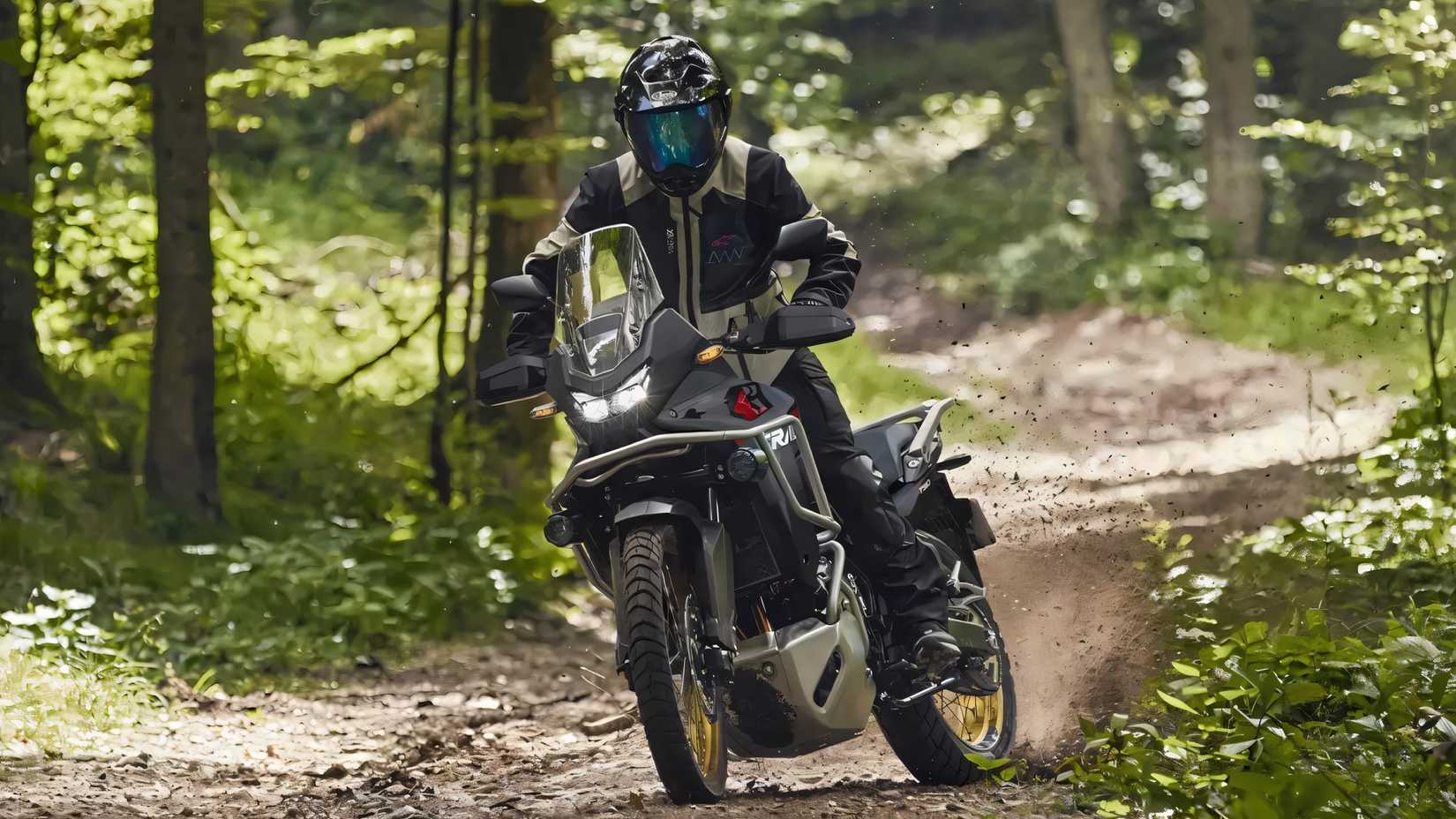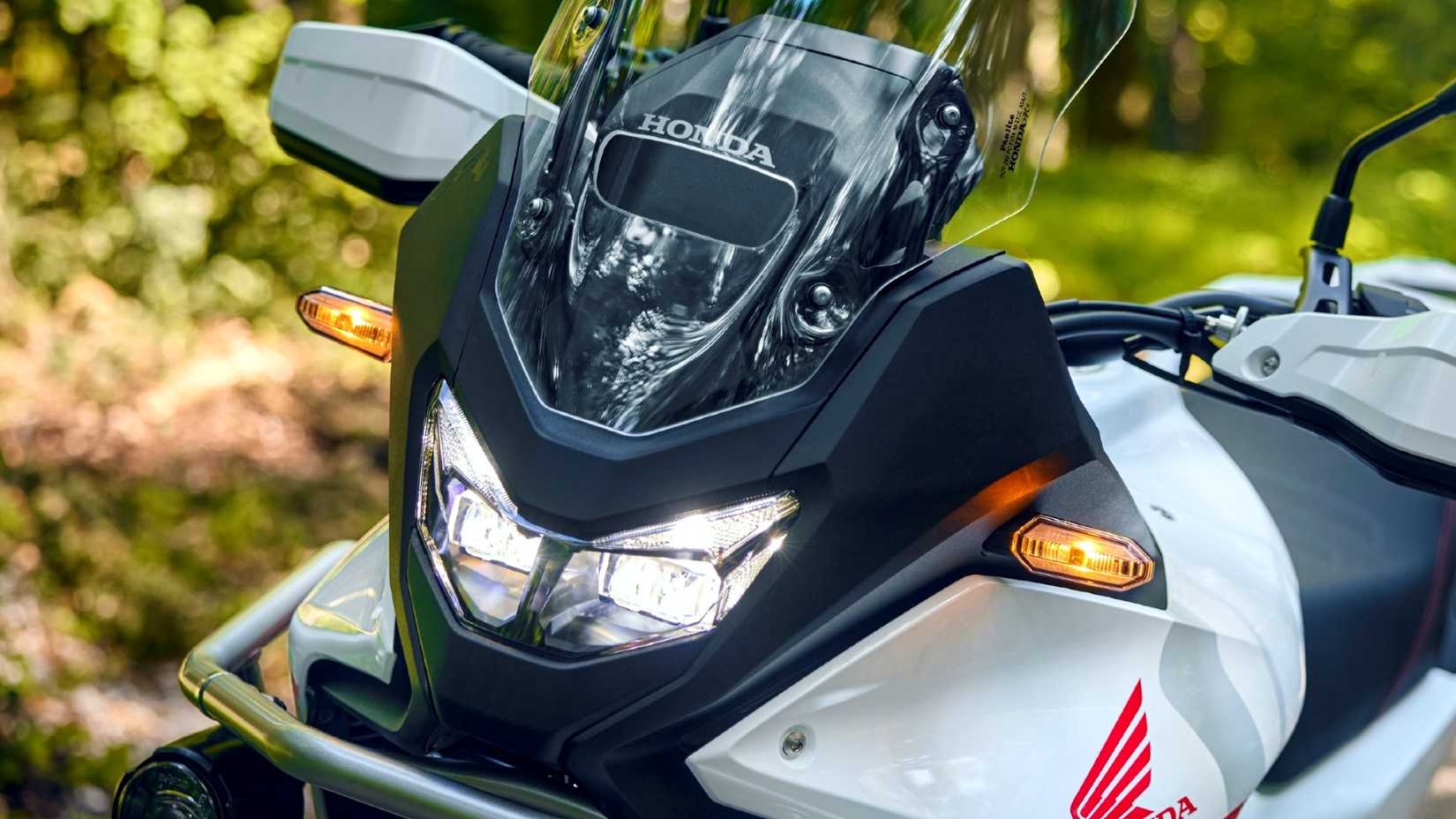Those looking for an adventure motorcycle gravitate by default to the BMW GS series. It is the gold standard when it comes to versatile adventure bikes, but the GS bikes aren’t without their downsides. For one, they aren’t Japanese, so they’re bound to cost a little more than you’d expect. This is also because BMW is a premium brand, and you do pay a little extra for the pride that comes with the badge on the tank. For another, BMW’s standard ownership costs are usually higher than that of ordinary brands because of the kind of engineering and expertise that goes into them, and is required from the technicians servicing them.
However, if you’re of a practical bent of mind, and you simply want an adventure bike that will do the job without fuss, then there are options, mostly Japanese. Products from the land of the rising sun have a tendency to be affordable, reliable, and get the job done without fuss. So if you’re in the market for a BMW F 900 GS but don’t want an F 900 GS, there is one Honda adventure bike that rivals it at a lower price.
To give you the most up-to-date and accurate information possible, the data used to compile this article was sourced from authoritative sources such as Honda Powersports and BMW Motorrad.
The XL750 Transalp Is The Honda Adventure Bike That Rivals the BMW GS At A Lower Price
Price: $9,999
The BMW F 900 GS is a great piece of kit. It offers a parallel twin engine with over 100 horsepower, endless customization, and a pedigree unlike any other when it comes to adventure bikes. However, you do have to pay for the privilege. Honda chooses to do things a little differently. It also offers an adventure bike with slightly lower displacement (750 cc versus almost 900 cc) but it is also available for significantly less money.
And you might be down on power, but the difference isn’t as much as the $4,276 price difference would have you believe. In fact, you get a little more standard kit on the Transalp, which includes a six axis IMU, ABS that can be turned off at the rear, and a standard quickshifter. This is why the Transalp is the Honda adventure bike that rivals the BMW GS at a lower price.
Honda XL750 Transalp Notable Features
- Standard quickshifter is present
- Most power ADV under $10,000
- Rear ABS can be turned off
- Has a six axis IMU
Honda XL750 Transalp Engine
Most Powerful Under $10,000
Honda’s engines can be a little confusing sometimes. The Transalp’s 755 cc parallel twin has no relation to the NC750X’s engine of similar displacement. This engine has a 270 degree crank, which gives it a good torque spread, but there is good power as well. The 90.5 horsepower figure isn’t far behind the 650cc inline four-cylinder engine from the CB650R. Sure, it does lose a good 15 horsepower to the F 900 GS, but for nearly 40 percent less on the retail price, that’s a compromise that is okay.
The Transalp shares this driveline with the CB750 Hornet as well, so it is a flexible engine. A little over 55 pound-feet is available at 7,250 RPM as well. An automatic gearbox isn’t available, but a two-way quickshifter is standard for the 2025 model. This means that a by-wire throttle has been added to the Transalp, and a six-axis IMU offers safety. A total of four engine power levels, three engine brake levels, and wheelie control are present. A chain transmits the drive to the wheel.
Honda XL750 Transalp Engine Specifications
|
Engine Configuration |
24.5 degree parallel twin, liquid cooling, Unicam SOHC, 4 valves per cylinder |
|
Displacement |
755 cc |
|
Bore x Stroke |
87 x 63.5 mm |
|
Compression Ratio |
11.0:1 |
|
Power |
90.5 HP @ 9,500 RPM |
|
Torque |
55.3 LB-FT @ 7,250 RPM |
|
Fuel System |
PGM-FI Electronic Fuel Injection |
|
Transmission |
6 speed manual transmission, assist and slipper clutch, standard quickshifter |
|
Final Drive |
Chain drive |
Honda XL750 Transalp Chassis
Extremely Versatile
The Transalp might not have the off-road credibility of the BMW GS series, but that doesn’t mean it isn’t capable of off-road work. This is a steel diamond frame that is more suited to tarmac, but Honda is merely catering to how Transalp customers usually use their bikes. That said, Showa long-travel suspension with inverted front forks and a link-type rear single shock are present. Preload can be adjusted at both ends. It also has a 21/18 wheel rim size, which is well suited to off-road work.
Dual 310 mm discs at the front and a single 256 mm rear disc are present, with radial two-piston floating calipers at the front. Plus, the ABS at the rear can be switched off. Ground clearance is a very decent 8.2 inches, and the Transalp weighs under 460 pounds ready to ride. All of this points to the fact that the Honda can keep up with the BMW off-road for most of the time. The F 900 GS offers options that make it better off-road, but that means the customer will need to spend a few thousand dollars more than the BMW’s $14,000+ base price.
Honda XL750 Transalp Chassis Specs And Dimensions
|
Chassis |
Steel diamond |
|
Front Suspension |
43mm Showa SFF-CA inverted fork; 7.9 inches travel |
|
Rear Suspension |
Pro-Link Showa single shock; 7.5 inches travel |
|
Front Tire And Wheel |
90/90 21 |
|
Rear Tire And Wheel |
150/70 18 |
|
Front Brakes |
Dual 310mm wave discs with radial-mount two-piston floating calipers |
|
Rear Brakes |
256 mm wave disc with single piston floating caliper |
|
Fuel Tank Capacity |
4.4 gallons |
|
Length/Width/Height |
91.5/32.9/57.2 inches |
|
Wheelbase |
57 inches |
|
Rake |
27 degrees |
|
Trail |
4.4 inches |
|
Seat Height |
33.7 inches/32.6 inch option |
|
Ground Clearance |
8.2 inches |
|
Curb Weight |
459 LBs (ready to ride) |
Honda XL750 Transalp Features
The New Look Is Distinctive
The Transalp looks unmistakably like a Honda, but the look has changed significantly for the 2025 model year. There is a more aggressive twin-pod headlamp at the front that distinguishes it. While sitting on the bike, the most noticeable new thing is the 5-inch TFT display – this is common among Hondas, and like the other models, it offers Bluetooth connectivity for calling and music, and turn-by-turn navigation. The single seat has options, including a low seat and a comfort seat. The accessories list has some useful things like heated grips, an engine bash plate, and luggage.
However, the addition of the switchable rear ABS and the standard two-way quickshifter are what make the Transalp really good value at the price. There are also self-canceling indicators that compare wheels speeds to decide when to turn off.
Honda XL750 Transalp Notable Features
- 5-inch TFT color display
- Bluetooth connectivity and navigation
- Optional low seat
- Self-canceling indicators
- Switchable rear ABS
- Six axis IMU
- Standard two-way quickshifter
Honda XL750 Transalp Competition
Quite A Few Models Between It And The BMW
The Transalp’s price makes it extremely good value, and the BMW F 900 GS’s premium positioning puts it 40 percent higher than the Honda. There are a couple of worthy adversaries between the two. One is the Yamaha Tenere 700, which, like the Honda, has got a significant update for the 2025 model year. It now has a by-wire throttle, ride modes, and a two-way quickshifter is optional. If you prefer to have a more road-focused but still off-road-capable adventure bike, then the Suzuki V-Strom 800DE is worth a look.
Like all Suzukis, it tends to be ignored a little, but it is a genuinely good product. Another really great value product is the CFMoto Ibex 800 E. For a few hundred dollars more than the Honda you get the middleweight adventure bike with the most features in the segment. If you want something European and off-road focused, you can also look at the Aprilia Tuareg ($12,499), but it is in a lower performance category with a 660cc engine and 80 horsepower.
Honda XL750 Transalp Vs Rivals
|
Model |
Honda XL750 Transalp |
BMW F 900 GS |
Yamaha Tenere 700 |
CFMoto Ibex 800 E |
Suzuki V-Strom 800 DE |
|
Price |
$9,999 |
$14,275 |
$10,999 |
$10,299 |
$11,709 |
|
Displacement |
755 cc |
895 cc |
689 cc |
799 cc |
776 cc |
|
Power |
90.5 HP @ 9,500 RPM |
105 HP @ 8,500 RPM |
73.4 HP @ 9,000 RPM |
94 HP @ 9,000 RPM |
83.1 HP @ 8,500 RPM |
|
Torque |
55.3 LB-FT @ 7,250 RPM |
68.6 LB-FT @ 6,750 RPM |
50 LB-FT @ 6,500 RPM |
56.8 LB-FT @ 6,500 RPM |
57.5 LB-FT @ 6,800 RPM |
|
Curb Weight (Wet) |
459 pounds |
482 pounds |
452 pounds |
509 pounds |
507 pounds |






